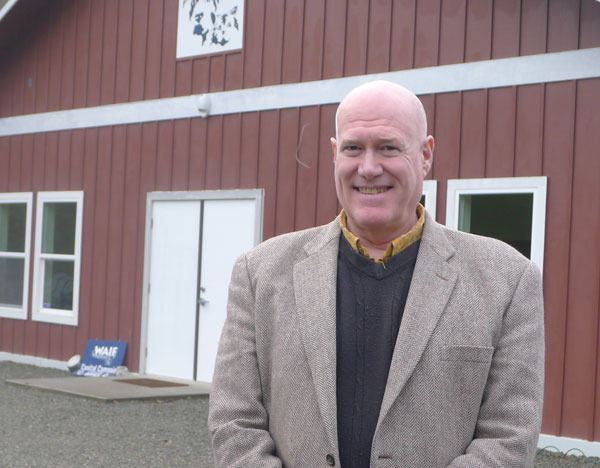Leaders of Whidbey’s animal shelter tapped the Midwest to find a new executive director.
Charles Vreeland started his tenure as the new chief of Whidbey Animals’ Improvement Foundation Nov. 4.
Vreeland comes to Whidbey Island from Kansas City, where he was the CEO of the Humane Society of Greater Kansas City. He held that position for seven years. During that time, he saw the organization’s budget increase from $800,000 to $2.1 million and the number of animals the organization acquires increase from approximately 700 a year to 2,100 a year.
Vreeland heads the organization that operates shelters near Coupeville and in Oak Harbor along with several thrift stores on Whidbey Island. He said he has two major tasks to accomplish: help raise enough money to pay for a new shelter on Central Whidbey and implement a financially sustainable mix of programs.
WAIF officials are busy raising around $1.8 million to pay for construction of a proposed 8,700-square-foot shelter on 9.8 acres of land located across the street from the Coupeville shelter’s current home. Nearly $2 million has already been raised for the nearly $4 million project. Groundbreaking is scheduled for September 2014. If enough money hasn’t been raised by the time construction starts, then the building will be completed in phases.
Vreeland said he hopes to expand the shelter’s spay and neuter program, which will be helpful in managing the island’s population of feral cats.
“Feral colonies are still an issue, especially around the Oak Harbor area,” Vreeland said. He added that the populations of feral cat colonies stabilize when 70 percent of the felines are sterilized.
WAIF is a minimal kill shelter that only euthanizes animals that are either unhealthy or don’t have the temperament to be placed with a family.
Vreeland is quick to point out the organization’s live release rate has topped 90 percent over the past 10 years. During 2012, the organization brought in 753 animals and, of that amount, 53 animals either died in the shelter or were put to sleep. That number includes animals brought to WAIF dead on arrival.
Vreeland’s work for the Humane Society marked his first time working for an animal shelter. Prior to that, he spent 30 years in nonprofits working with youth and adults who have persistent mental illness.
While serving as a coordinator for safe-and-drug-free schools, he noticed cruelty to animals by youth was a warning sign for future violence.
He said he wanted to work for an organization like the Humane Society to develop programs for children and animals.
Vreeland, who is a native of Idaho, decided on Whidbey Island because it gave him a chance to relocate back to the Pacific Northwest. Whidbey also offered a rural environment that he found appealing.
He noted that WAIF was founded in 1990 and he wanted to be part of an organization that is in the upswing of development.


